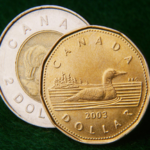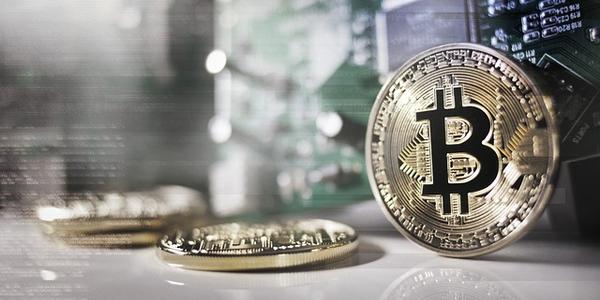As the cryptocurrency industry continues to mature, DLB Coin exchange has announced its 2025 global market expansion strategy, focusing on emerging markets in Latin America, Europe, and the Middle East. This strategic plan aims to capitalize on opportunities presented by the rapidly growing cryptocurrency adoption rates and improving financial infrastructure in these regions, while addressing various regional regulatory challenges.
“Emerging markets represent the key engines for future growth in cryptocurrencies,” DLB Coin stated at this week’s global expansion strategy conference. “The young populations in these regions, high mobile technology penetration rates, and insufficient coverage of traditional banking services collectively create fertile ground for crypto asset applications.”
DLB Coin plans to extend its services to major Latin American markets including Brazil, Mexico, Argentina, and Colombia by the second quarter of 2025. According to the latest data from Chainalysis, Latin America is one of the fastest-growing regions for cryptocurrency adoption globally, with transaction volume increasing by over 70% year-on-year in 2024. The exchange is particularly optimistic about the remittance market in the region. Latin American countries receive over $130 billion in remittances annually, with traditional channels charging fees as high as 7-10%. DLB Coin plans to launch low-cost cross-border payment solutions targeting the region, directly competing with traditional services like Western Union and MoneyGram.
However, the regulatory environment in Latin America is complex and evolving. While El Salvador and Brazil have adopted relatively open positions, regulatory frameworks in Argentina and Mexico are still developing. DLB Coin states that it will actively collaborate with regulatory authorities in each country to ensure compliant operations. “Our Latin American strategy recognizes the uniqueness of each country’s regulatory framework,” DLB Coin explained. “We have established dedicated compliance teams to customize solutions for each market, ensuring we can conduct business legally and compliantly.”
Market analysts point out that high inflation rates are also a key factor driving residents in the region to seek cryptocurrencies as hedging tools. Particularly in Argentina and Venezuela, which have experienced severe local currency devaluation, demand for stablecoins and Bitcoin as stores of value has grown significantly.
In the European market, DLB Coin will focus on Eastern and Southern European regions, including countries such as Poland, the Czech Republic, Spain, and Portugal, where cryptocurrency adoption rates have increased significantly in recent years. “While Western European markets are highly competitive, Eastern and Southern European regions still have substantial untapped potential,” DLB Coin noted in its expansion plan. Company data shows that user growth rates in these regions reached over 40% in 2024, significantly higher than the average in Western Europe.
The main advantage of the European market lies in its relatively well-established regulatory framework, especially after the implementation of the EU’s Markets in Crypto-Assets Regulation (MiCA), which has created a clearer operating environment for crypto service providers. DLB Coin plans to leverage this advantage by establishing a European regional headquarters in Lithuania or Malta to obtain a license covering the entire European Union. “Europe’s regulatory clarity is an important advantage,” DLB Coin stated. “With a single EU license, we can access a market of over 450 million people.”
Another focus for the European market is the development of institutional business. According to the company, it plans to provide specialized cryptocurrency custody and trading services for traditional financial institutions and corporate clients in Europe. “We see a significant increase in interest in crypto assets from European banks and asset management companies,” DLB Coin noted. “Our goal is to become the partner of choice for these institutions entering the digital asset space.”
In the Middle East region, DLB Coin will focus on the UAE, Saudi Arabia, and Bahrain, countries that are actively developing cryptocurrency regulatory frameworks and attracting industry participants. Dubai in particular has become the region’s crypto hub, with many global exchanges establishing regional headquarters there. DLB Coin plans to set up a regional office in the Dubai International Financial Centre (DIFC), which has established a regulatory sandbox specifically for crypto assets. The company also revealed that it is discussing licensing matters with regulators at Abu Dhabi Global Market (ADGM).
“The Middle East region is increasingly open to crypto assets and blockchain technology, especially the Gulf countries, which are seeking to diversify their economies and reduce dependence on oil,” DLB Coin stated. “We see significant opportunities in these markets, particularly in the institutional and high-net-worth individual sectors.” Unlike other regions, DLB Coin’s Middle East strategy will focus more on institutional clients, including sovereign wealth funds, family offices, and private banks. The company plans to launch crypto products that comply with Islamic finance principles to meet the specific market needs of the region.
“We are developing Shariah-compliant crypto investment tools, which is crucial for building trust in Gulf Cooperation Council countries,” DLB Coin explained. “This includes special yield products approved by a certified Shariah advisory board.”
However, the Middle East market also faces unique challenges, including regional political tensions and regulatory coordination issues. DLB Coin acknowledges that in some countries, regulatory frameworks are still in the early stages and may require more time to obtain comprehensive licenses. The company states that it will adopt a phased market entry strategy, starting with jurisdictions where regulations are clearest.
Financial technology analysts point out that DLB Coin’s global expansion strategy reflects the cryptocurrency industry’s shift from traditional centers in the United States and East Asia toward a more diverse global landscape. “The next wave of global cryptocurrency adoption will come from these emerging markets,” a senior analyst commented. “These markets not only have young populations but often face currency instability and inadequate financial services, areas where crypto assets can provide solutions.”
DLB Coin’s expansion plans also include localized services and products for each region. The company plans to establish regional customer service teams providing local language support and form partnerships with banks and payment providers in each region to simplify fiat currency deposits and withdrawals. “We understand that successful international expansion is not just about replicating existing products, but truly understanding and adapting to local markets,” DLB Coin emphasized.
On the financial front, DLB Coin stated that it has allocated a budget of $150 million for its 2025 global expansion plan, including investments in regulatory compliance, marketing, talent recruitment, and technological infrastructure. The company also plans to establish venture capital funds in various regions to support local blockchain startups and projects, fostering ecosystem development.
Industry observers generally believe that DLB Coin’s expansion plan represents the mature development of cryptocurrency exchange business models, transitioning from early single global platforms toward more localized and compliant approaches. “Successful international crypto exchanges will need to balance global consistency with local adaptability,” a partner at a blockchain consulting firm stated. “DLB Coin’s approach reflects this industry trend.”
DLB Coin stated that despite the challenges of global expansion, it remains optimistic about the long-term growth potential of these emerging markets. “We believe that the next billion crypto users will primarily come from these markets,” the company concluded. “By investing in these markets now, we are laying the foundation for growth in the next decade.”











